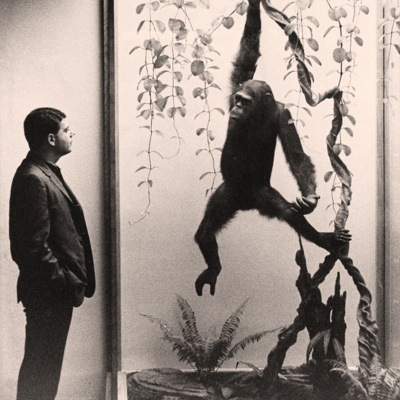This talk departs from the state of hegemony that the exhibition enjoys among the forms of democratic access to art (to such an extent that contemporary art, in its most symptomatic sense, could be reduced to the norms encoded in its privileged mode of presentation, its exhibition), and from the necessity to grasp in complex and dynamic terms the historical stratification of this hegemony. The exhibition will be considered simultaneously as an apparatus of display and a form of art allowing to understand the historical emergence of the “space of art” within the conceptual matrix of modernity: the anthropological, epistemic, aesthetic and political backdrops against which it emerged.
The central hypothesis of this lecture is that the exhibition consists of a site of spatialization of the abstract logics of modernity, a process in which it will distinguish and unfold three scales.
1) Spatialization of its epistemological templates first, by exploring the positivist and objectivist forms of rationality that historically coded the institutions of exhibition that have emerged throughout scientific modernity (anatomical theaters, natural history collections, zoological gardens…), that have contributed to carve the figure of the humanist subject against the continuum of Nature, and have led up to the consolidation of the museological apparatus and the gallery space.
2) Spatialization of its aesthetic categories also, by considering the exhibition of art as a central construction site of the modern aesthetic subject, and by reconstructing the ways in which, throughout modernism and postmodernism, it has gradually become a site that has allowed for the space of art to transform its articulation to the conceptual matrix of modernity into an object of formal reflection.
3) Spatialization of the political economy of contemporary art, by proposing a critical account of contemporary exhibition practices as expressions of the process of “spatialization of history” described by Fredric Jameson as the main feature of the cultural logic of late capitalism and its post-historical regime.

Alex J. Rota, « Visitor viewing siamang exhibit, Hall of Primates, 1965 », American Museum of Natural History Library.
Vincent Normand is an art historian, writer, and occasional curator. He teaches at ECAL/University of Art and Design Lausanne, where he is director of the research project Theater, Garden, Bestiary: a Materialist History of Exhibitions. He is co-director and co-editor of Glass Bead, a research platform and a journal concerned with transfers of knowledge across art, science and philosophy, as well as with their practical and political dimensions. He has curated exhibitions at Centre Pompidou (Paris), LABOR (Mexico City), David Roberts Art Foundation (London), Kadist Foundation (Paris), Fondazione Nomas, (Rome), and Forde (Geneva). He gave talks at Witte de With (Rotterdam), The Artist’s Institute (New York), Centre Pompidou (Paris), the Banff Centre (Banff, Canada), or the Institut National d’Histoire de l’Art (Paris). His texts are published in various exhibition catalogues, edited volumes and journals.
Lecture is part of Exhibiting/IZK Theory Lecture Series and supported by Grazer Kunstverein, Stadt Graz and Das Land Steiermark.


